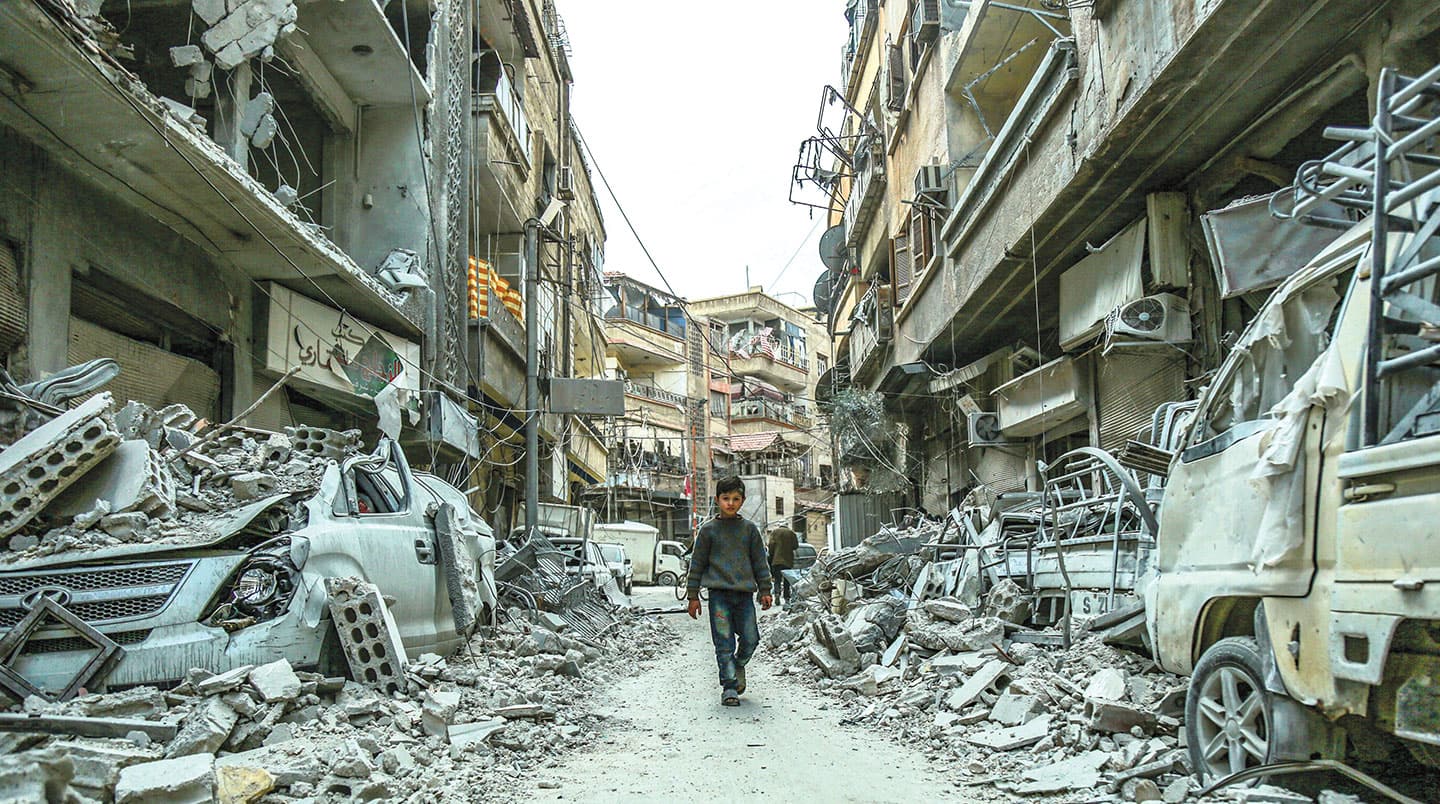Syrian civilians, ultimately, are the ones paying the price, aid groups say. Assad’s regime has used chemical weapons more than 300 times during the war, according to a report last year by the Global Public Policy Institute. One such attack killed at least 1,400 people, more than a third of them children.
Much of the bombing has been in heavily populated areas, with families caught in the cross fire. Assad’s military and its allies have repeatedly launched airstrikes on hospitals and schools in rebel-held cities to weaken the opposition, using the excuse that rebel fighters might be hiding in those places.
Ballour’s hospital was bombed multiple times from 2013 to 2018, during Assad’s siege on eastern Ghouta. The region was targeted because it was a rebel stronghold. As the hospital’s manager, Ballour eventually made the life-or-death decision to move her patients and staff underground to protect them.
She and her team cared for premature babies in narrow tunnels and performed emergency surgeries in the basement kitchen. The hospital’s surgeon had no anesthesia (drugs that reduce or prevent pain). Instead, he would play classical music on his phone to distract patients while he operated on them.
In this way, Ballour and the other doctors were able to help countless people, many of them children. But far too often, the doctors found themselves helpless. The five-year siege had cut off access to food, medicine, and other key supplies. When families brought in children who were slowly starving to death as a result, there was nothing the hospital staff could do to help.
In quiet moments, Ballour would sneak away to cry. “How can I hold back tears while witnessing humanity being destroyed?” she later said.
In spring 2018, as Assad’s forces prepared to move into the area, Ballour and her staff evacuated. They loaded their patients onto crowded buses and drove into the night. Ballour ended up in Turkey, along with millions of other Syrians.

